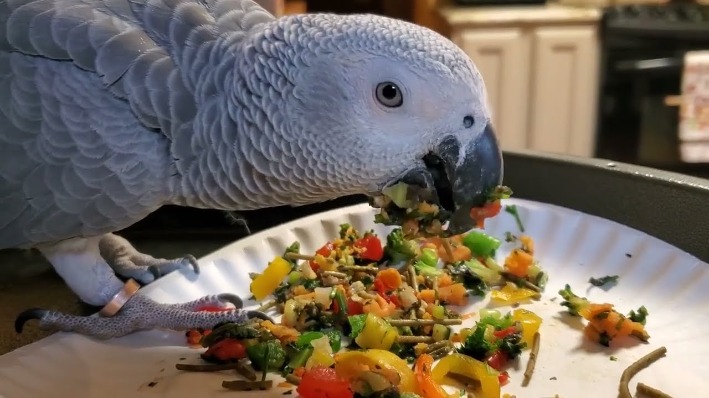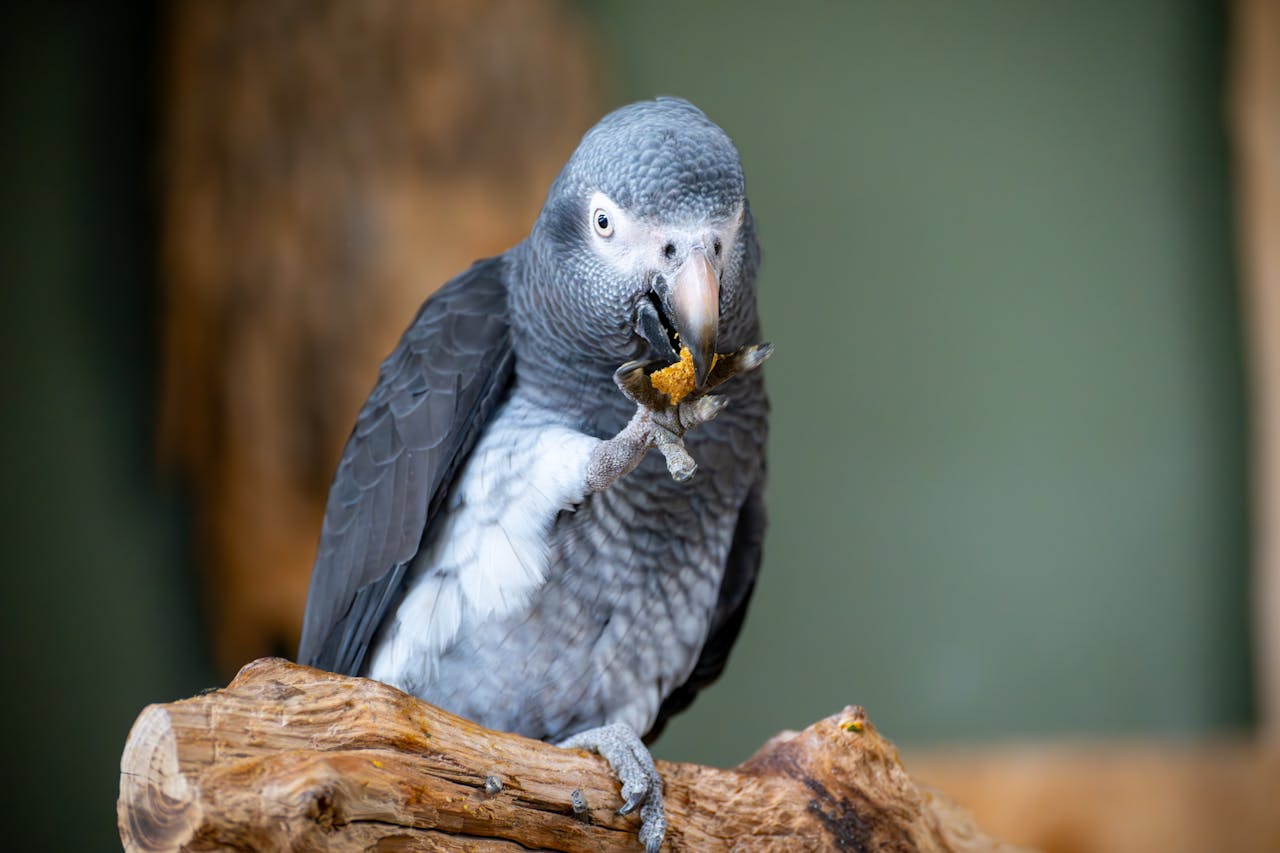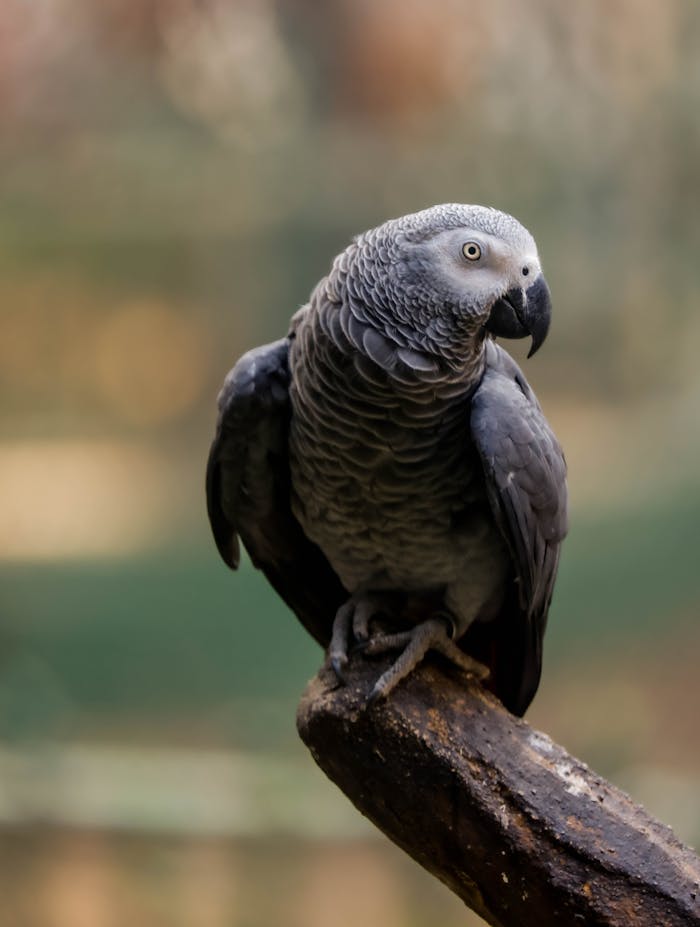Understanding the Nutritional Needs of African Grey Parrots
African Grey Parrot Food Essential Nutrients
Understanding the nutritional needs of African Grey Parrots is crucial for their overall health and well-being. These intelligent and social birds require a balanced diet that mimics their natural feeding habits in the wild to thrive in captivity.
Table of Contents
African Grey Parrots primarily consume seeds, nuts, fruits, and vegetables in their natural habitat. A well-rounded diet for these birds should incorporate a variety of foods to ensure they receive all essential nutrients necessary for optimal growth, development, and maintenance of body functions.
Proteins are one of the fundamental nutrients needed by African Grey Parrots. They play a vital role in muscle development and repair, as well as enzymatic functions. High-quality sources of protein can be found in legumes, cooked eggs, and certain seed mixes formulated specifically for parrots. A diet lacking adequate protein can lead to malnutrition and affect feather quality and growth.
Fats are another essential nutrient, providing energy and supporting various bodily functions. However, it’s important to choose healthy fats. Nuts and seeds have a high-fat content but should be offered in moderation due to their calorie density. Avocados, while rich in healthy fats, should be avoided entirely as they are toxic to birds.
Carbohydrates are also necessary as they serve as a quick source of energy. Whole grains such as quinoa, brown rice, and oats can be included in their diet. These complex carbohydrates provide sustained energy throughout the day, essential for their active lifestyle.
Vitamins and minerals are critical components of an African Grey parrot’s diet. Vitamin A, for instance, supports vision and immune function and can be obtained from colorful vegetables like carrots, sweet potatoes, and dark leafy greens. Vitamin D is also significant, as it aids in calcium absorption; exposure to sunlight or UV light is necessary for synthesis, but dietary sources like fortified pellets can help fulfill this need.
Calcium is particularly vital for African Grey Parrots, especially for breeding females and young chicks. Insufficient calcium can lead to serious health issues, including metabolic bone disease. Offering cuttlebone, mineral blocks, and leafy greens can support calcium intake. Additionally, phosphorus must be balanced with calcium to prevent health problems, emphasizing the need for a varied diet.
Water is often overlooked but is crucial for hydration and the proper functioning of all physiological processes. Fresh, clean water should always be available, and it should be changed daily to prevent contamination.
Commercial pelleted diets designed for parrots are also available and can serve as a reliable base for feeding African Grey Parrots. These pellets are formulated to include a balance of nutrients and can help prevent selective eating habits where birds only consume their favorite seeds or treats, leading to potential deficiencies.
Incorporating fresh fruits and vegetables daily ensures a diverse range of vitamins and minerals. Leafy greens, bell peppers, berries, and apples can entice picky eaters while providing essential nutrients.
It’s essential to monitor the dietary intake of African Grey Parrots closely and adjust as needed based on age, activity level, and health status. Regular consultations with an avian veterinarian can help ensure that dietary choices are appropriate and beneficial for individual birds.
In conclusion, understanding the nutritional needs of African Grey Parrots requires a comprehensive approach that accounts for their unique biological requirements. By providing a balanced diet rich in proteins, healthy fats, carbohydrates, vitamins, and minerals, along with fresh water, owners can promote vibrant health and longevity for their feathered companions.
Macronutrients and Micronutrients
Understanding the nutritional needs of African Grey Parrots is crucial for their overall health and well-being. These intelligent and social birds require a balanced diet that mimics their natural feeding habits in the wild to thrive in captivity.
African Grey Parrots primarily consume seeds, nuts, fruits, and vegetables in their natural habitat. A well-rounded diet for these birds should incorporate a variety of foods to ensure they receive all essential nutrients necessary for optimal growth, development, and maintenance of body functions.
Proteins are one of the fundamental nutrients needed by African Grey Parrots. They play a vital role in muscle development and repair, as well as enzymatic functions. High-quality sources of protein can be found in legumes, cooked eggs, and certain seed mixes formulated specifically for parrots. A diet lacking African Grey for Sale adequate protein can lead to malnutrition and affect feather quality and growth.
Fats are another essential nutrient, providing energy and supporting various bodily functions. However, it’s important to choose healthy fats. Nuts and seeds have a high-fat content but should be offered in moderation due to their calorie density. Avocados, while rich in healthy fats, should be avoided entirely as they are toxic to birds.
Carbohydrates are also necessary as they serve as a quick source of energy. Whole grains such as quinoa, brown rice, and oats can be included in their diet. These complex carbohydrates provide sustained energy throughout the day, essential for their active lifestyle.
Vitamins and minerals are critical components of an African Grey parrot’s diet. Vitamin A, for instance, supports vision and immune function and can be obtained from colorful vegetables like carrots, sweet potatoes, and dark leafy greens. Vitamin D is also significant, as it aids in calcium absorption; exposure to sunlight or UV light is necessary for synthesis, but dietary sources like fortified pellets can help fulfill this need.
Calcium is particularly vital for African Grey Parrots, especially for breeding females and young chicks. Insufficient calcium can lead to serious health issues, including metabolic bone disease. Offering cuttlebone, mineral blocks, and leafy greens can support calcium intake. Additionally, phosphorus must be balanced with calcium to prevent health problems, emphasizing the need for a varied diet.
Water is often overlooked but is crucial for hydration and the proper functioning of all physiological processes. Fresh, clean water should always be available, and it should be changed daily to prevent contamination.
Commercial pelleted diets designed for parrots are also available and can serve as a reliable base for feeding African Grey Parrots. These pellets are formulated to include a balance of nutrients and can help prevent selective eating habits where birds only consume their favorite seeds or treats, leading to potential deficiencies.
Incorporating fresh fruits and vegetables daily ensures a diverse range of vitamins and minerals. Leafy greens, bell peppers, berries, and apples can entice picky eaters while providing essential nutrients.
It’s essential to monitor the dietary intake of African Grey Parrots closely and adjust as needed based on age, activity level, and health status. Regular consultations with an avian veterinarian can help ensure that dietary choices are appropriate and beneficial for individual birds.
In conclusion, understanding the nutritional needs of African Grey Parrots requires a comprehensive approach that accounts for their unique biological requirements. By providing a balanced diet rich in proteins, healthy fats, carbohydrates, vitamins, and minerals, along with fresh water, owners can promote vibrant health and longevity for their feathered companions.
Types of Food Suitable for African Grey Parrots
- Seeds and Nuts
- Sunflower seeds (limited due to high fat content)
- Pumpkin seeds
- Almonds
- Walnuts
- Pistachios
- Fruits
- Apples (without seeds)
- Bananas
- Berries (blueberries, strawberries, raspberries)
- Mango
- Pineapple
- Vegetables
- Carrots
- Broccoli
- Bell peppers (variety of colors)
- Kale and other leafy greens
- Sweet potatoes
- Proteins
- Cooked legumes (lentils, chickpeas)
- Cooked eggs (in moderation)
- Commercially prepared protein-rich pellets
- Grains
- Brown rice
- Quinoa
- Whole grain bread (small amounts)
- Oats
Pelleted Diets
Pelleted diets can serve as the foundation of an African Grey’s nutrition due to their balanced formulation. Here are some key benefits and features of pelleted diets:
- Complete Nutrition: Pellets are designed to meet all essential nutrient requirements, including vitamins, minerals, proteins, and fats, minimizing the risk of deficiencies.
- Prevention of Selective Eating: Birds may choose only their favorite seeds or treats if given the option. Pelleted diets encourage more consistent consumption of essential nutrients.
- Quality Control: Reputable brands ensure that their pelleted diets undergo rigorous testing to provide safe and nutritious food for parrots.
- Convenience: Pellets are easy to store, measure, and serve, making feeding time more manageable for owners.
- Variety in Formulation: Many brands offer different pellet sizes and formulations tailored specifically for African Grey Parrots, catering to their unique dietary needs.
In conclusion, a combination of fresh fruits, vegetables, seeds, nuts, grains, and a quality pelleted diet is ideal for maintaining the health of African Grey Parrots. Regular monitoring and consultation with an avian veterinarian will help tailor the diet to suit the specific needs of individual birds, promoting their overall health and longevity.
Fresh Fruits and Vegetables
African Grey Parrots thrive on a diverse diet that closely resembles their natural feeding habits. Providing a variety of fresh fruits and vegetables is essential not only for nutrition but also for mental stimulation and physical health.
When selecting fresh fruits suitable for African Grey Parrots, it is important to prioritize those that are rich in vitamins and antioxidants. Apples are a popular choice, but it’s crucial to remove the seeds, as they contain cyanide, which is toxic to birds. Bananas offer a soft texture that many parrots enjoy, providing potassium and necessary sugars. Berries such as blueberries, strawberries, and raspberries are highly nutritious and can be offered whole or sliced, giving birds a fun way to forage for their food.
Mango is another excellent fruit option; it’s full of essential vitamins, particularly vitamin A, which supports eye health. Pineapple, with its high water content and refreshing taste, can also be appealing to these birds while supplying them with dietary fiber. Other fruits like grapes, oranges, and melons can be introduced in moderation, ensuring a colorful variety that captures their interest during mealtime.
Vegetables should make up a significant portion of an African Grey Parrot’s diet as they provide vital nutrients without excessive calories. Leafy greens are particularly beneficial; kale, Swiss chard, and spinach are all good choices. These greens are packed with calcium, iron, and vitamins A, C, and K. Bell peppers in various colors not only add visual appeal but are also high in vitamin C, essential for maintaining a robust immune system.
Other vegetables such as carrots can be served raw or steamed, enhancing palatability while retaining nutrients. Broccoli is another vegetable that can be offered either raw or cooked, providing a good source of vitamins and minerals. Sweet potatoes, rich in beta-carotene, can be baked or boiled, making them a nutritious treat that many parrots enjoy.
It is also beneficial to introduce a variety of textures and preparations to keep meals interesting. Chopping fruits and vegetables into smaller pieces can encourage foraging behavior, allowing birds to engage mentally as they eat. Offering foods on skewers or in puzzle feeders can help to mimic foraging activities found in the wild.
While fresh fruits and vegetables should constitute a significant part of the diet, it is imperative to balance these with other food types. Proteins from sources such as cooked legumes (like lentils or chickpeas) provide essential amino acids critical for muscle development and overall health. Cooked eggs can be offered occasionally as a protein boost, but moderation is key.
Grains, including whole grains like quinoa, brown rice, and oats, contribute carbohydrates that supply energy throughout the day. Whole grain bread may be offered in small amounts as an occasional treat, ensuring that it does not replace more nutrient-dense options.
Furthermore, ensuring that your African Grey has access to clean, fresh water daily is just as vital as food selection. Hydration supports digestion and overall bodily functions, and changing the water regularly prevents contamination.
In summary, a well-rounded diet for African Grey Parrots consists of a mix of fresh fruits and vegetables, proteins, healthy fats, and grains. This variety ensures they receive all the necessary nutrients for optimal health. Regularly consulting with an avian veterinarian can further assist in tailoring their diet based on specific needs, promoting their well-being and longevity.
Nuts and Seeds
African Grey Parrots are known for their intelligence and sociability, and providing them with a suitable diet is crucial for their overall health. A variety of foods should be offered to meet their nutritional needs and mimic their natural feeding habits.
Seeds and Nuts
Seeds and nuts are staples in the diet of African Grey Parrots. However, due to their high-fat content, these should be offered in moderation. Common seeds include:
- Sunflower seeds – While they are favored by many birds, they should be given in limited quantities to avoid obesity.
- Pumpkin seeds – These can provide healthy fats and protein, making them a nutritious snack.
- Almonds – Rich in vitamin E and healthy fats, almonds are an excellent choice when offered sparingly.
- Walnuts – They are a good source of omega-3 fatty acids, beneficial for brain health.
- Pistachios – These nuts offer a unique taste and texture that can make mealtime interesting for parrots.
Fruits
Fruits are an essential part of an African Grey’s diet, as they provide vitamins, minerals, and hydration. Some suitable fruits include:
- Apples (without seeds) – A great source of fiber and vitamin C, apples can be sliced into manageable pieces.
- Bananas – Soft and easily digestible, bananas are rich in potassium.
- Berries – Blueberries, strawberries, and raspberries are antioxidant-rich options that many birds enjoy.
- Mango – This tropical fruit offers vitamin A and a sweet flavor that appeals to parrots.
- Pineapple – With its juicy texture, pineapple African Grey Parrots for Sale provides hydration and important nutrients.
Vegetables
Vegetables should make up a significant portion of the diet. They are low in calories but high in essential nutrients. Suitable vegetables include:
- Carrots – These can be served raw or steamed and are high in beta-carotene.
- Broccoli – Packed with vitamins K and C, broccoli can be offered raw or lightly cooked.
- Bell peppers – Available in various colors, bell peppers are high in vitamin C and can add variety to meals.
- Kale and other leafy greens – Leafy greens are excellent sources of calcium and other vital nutrients.
- Sweet potatoes – Nutrient-dense and versatile, sweet potatoes can be baked or boiled for a delicious treat.
Proteins
Protein is essential for muscle development and overall health. Good sources of protein include:
- Cooked legumes such as lentils and chickpeas – These are excellent plant-based protein options.
- Cooked eggs – In moderation, eggs provide high-quality protein and essential nutrients.
- Commercially prepared protein-rich pellets – These can ensure that parrots receive balanced nutrition.
Grains
Including whole grains in the diet provides necessary carbohydrates for energy. Recommended grains include:
- Brown rice – A wholesome grain that is a good energy source.
- Quinoa – High in protein and fiber, quinoa is a nutritious option.
- Whole grain bread – Offered in small amounts, it can be a enjoyable treat.
- Oats – These can be served cooked or raw for added texture and nutrition.
Pelleted Diets
Pelleted diets can form the basis of an African Grey’s nutrition. The benefits of pelleted diets include:
- Complete Nutrition: Pellets are formulated to meet all essential nutrient requirements, which helps prevent deficiencies.
- Prevention of Selective Eating: Pellets encourage consumption of a balanced diet rather than selective eating of favorite foods.
- Quality Control: Reputable brands undergo rigorous testing to ensure safety and nutrition.
- Convenience: Pellets are easy to store and serve, simplifying feeding routines.
- Variety in Formulation: Different pellet sizes and formulations cater to specific dietary needs of African Grey Parrots.
In conclusion, a balanced diet for African Grey Parrots consists of a mix of fresh fruits, vegetables, seeds, nuts, and grains, complemented by a quality pelleted diet. Regular consultations with an avian veterinarian will help tailor the dietary needs based on individual health and lifestyle, promoting vibrant health and longevity for these remarkable birds.
Supplements and Treats
African Grey Parrots are known for their intelligence and sociability, and providing them with a suitable diet is crucial for their overall health. A variety of foods should be offered to meet their nutritional needs and mimic their natural feeding habits.


